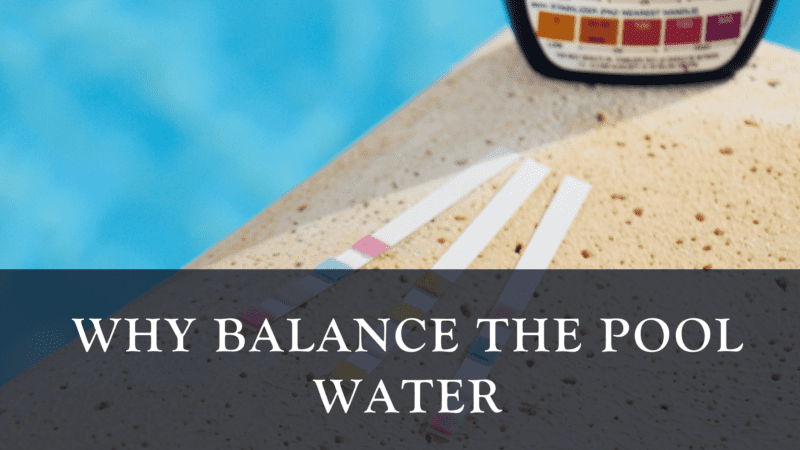Why Balance Pool Water

Balancing the pool water means adding the proper amount of certain chemicals to ensure the safety and health of bathers as well as protection for the pool equipment. To determine the amount of chemicals, as well as which chemicals to add, we encourage you to take a water sample to your local pool professional for analysis.
The 3 main reasons to balance the pool are:
- It helps sanitizing chemicals (i.e. chlorine and bromine) to work effectively, keeping swimmers safe
- It decreases the chance for water problems, including cloudiness and algae growth.
- It prolongs the life of your pool equipment, saving you money.
Protecting your Swimmers
Maintaining a proper pH level is crucial to keep your sanitizers functioning. A low pH means highly acidic water. Acidic water eats up sanitizing chemicals much faster and doesn’t give them the time they need to do their job. This means unsanitary and therefore unsafe water for swimmers. Low pH levels can also cause skin and eye irritation for swimmers.
Preventing Water Problems
As stated above, highly acidic water means your sanitizing chemicals aren’t doing their job. Un-sanitized pools can easily become filled with cloudy particles and/or algae. This problem is avoided by maintaining a proper pH level.
Stabilizer
Stabilizing chemicals help to protect your sanitizers from solar degradation. Just like acidic water, the sun can cause deterioration of your sanitizing chemicals. Stabilizing chemicals are to your pool as sunblock is to your skin. Stabilizers are important to ensure your sanitizers can do their job and keep your pool water sanitary, safe, and free from water problems (i.e., Cloudiness, Algae).
Protecting your investment
Properly balanced calcium hardness in your pool will ensure you receive the longevity you deserve out of your pool and equipment. Your pool water needs calcium; insufficient calcium levels will cause the water to draw its calcium from vinyl liners, concrete walls, PVC plumbing and more, corroding and deteriorating your pool and equipment. Conversely, if a pool has excessive calcium, it will cause scaling, covering your pool liner and equipment in a white film. This film can damage your equipment and even cause your heater to consume more energy and increase its running cost. Another risk to your investment is wrinkling of your liner which can be cause by improperly balanced alkalinity.
How to Balance Your Pool Water
The first step to achieving proper water balance is testing. Throughout the pool season, bring a sample of your water to us for our professional analysis. This should be done at least once a month. Another way to test your water, though less accurate than professional analysis, is to test your water at home with a test kit or test strips, at least once a week.
